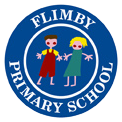Geography programme
At Thornhill and Arlecdon Primary School we believe that children should learn about themselves and their environment. It is part of Learning about Our World, a key element of our Curriculum.
Our Early Years Curriculum enables children to explore and develop in knowledge and skill through themes. Many of these themes ensure the chance to develop a basic understanding of geography, a sense of place and to wonder at the natural world.


 Aims
Aims

